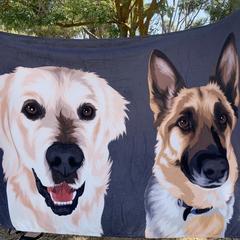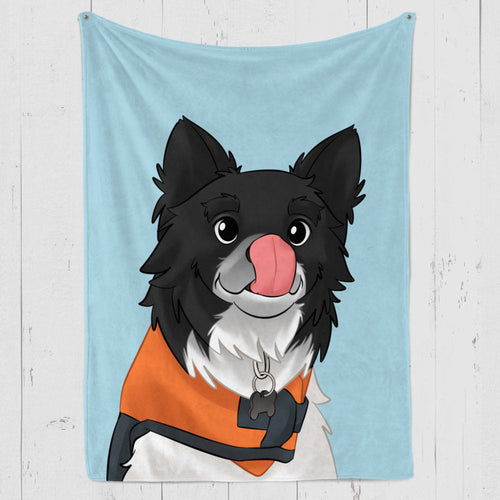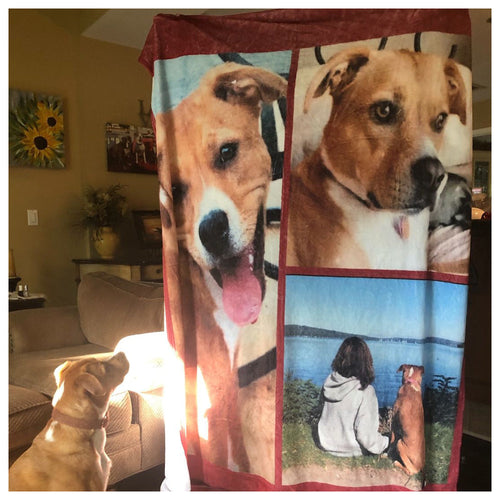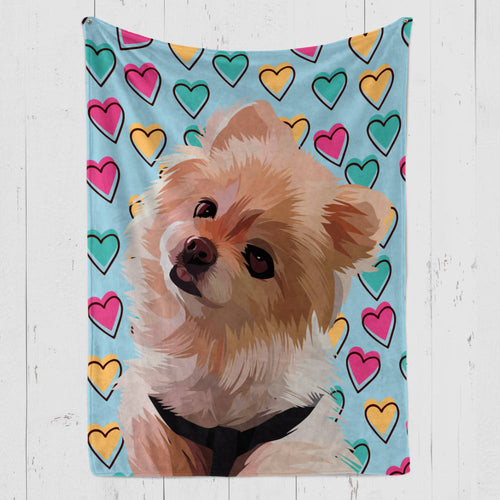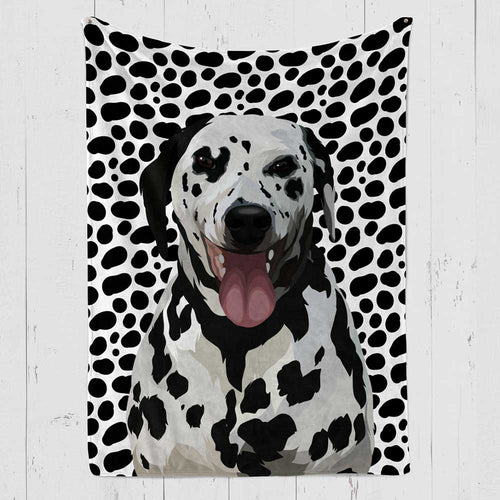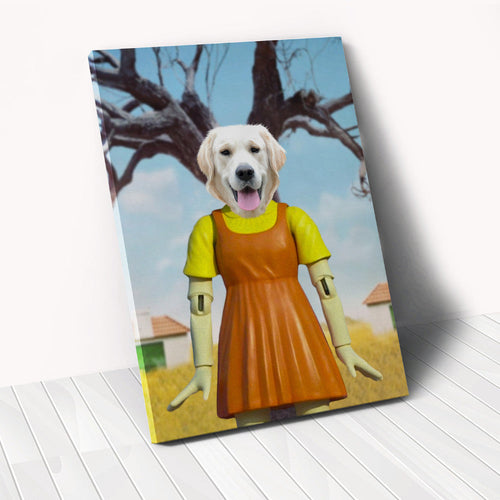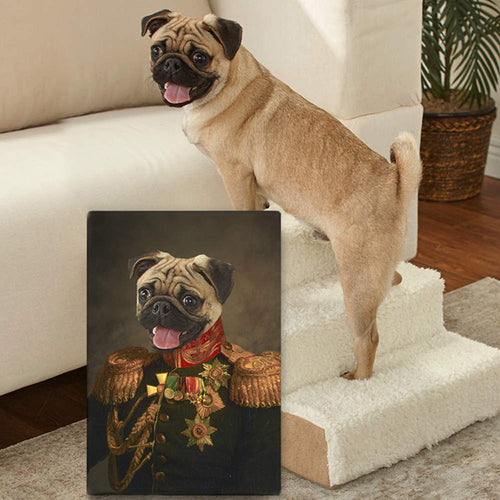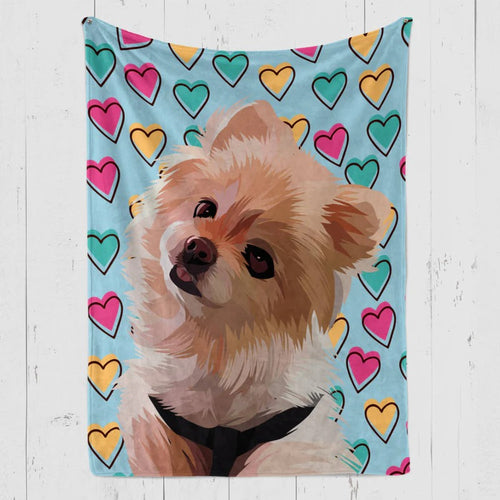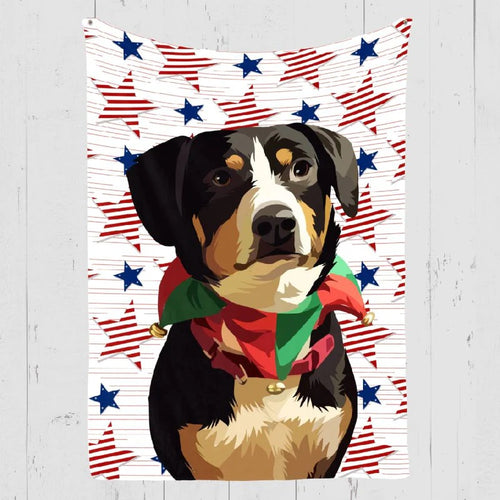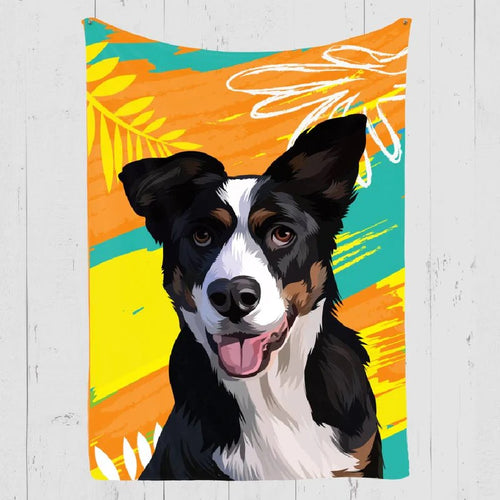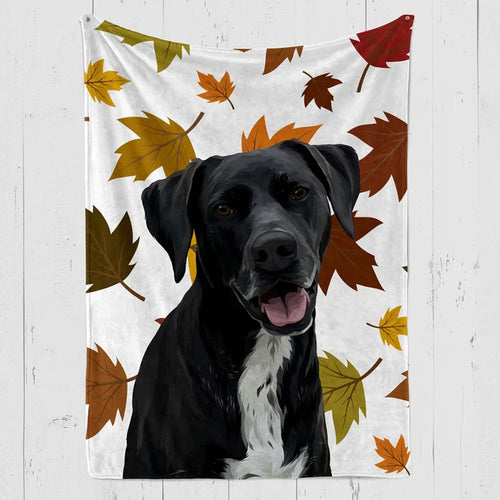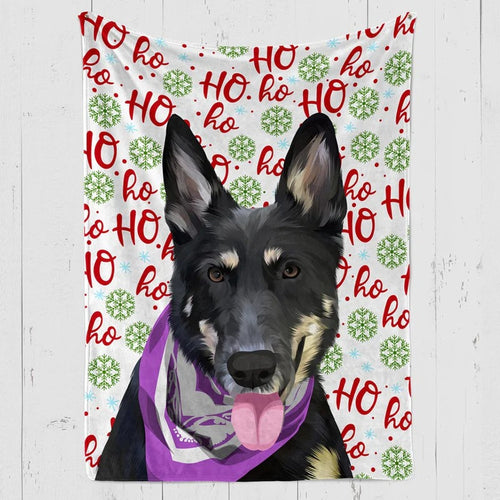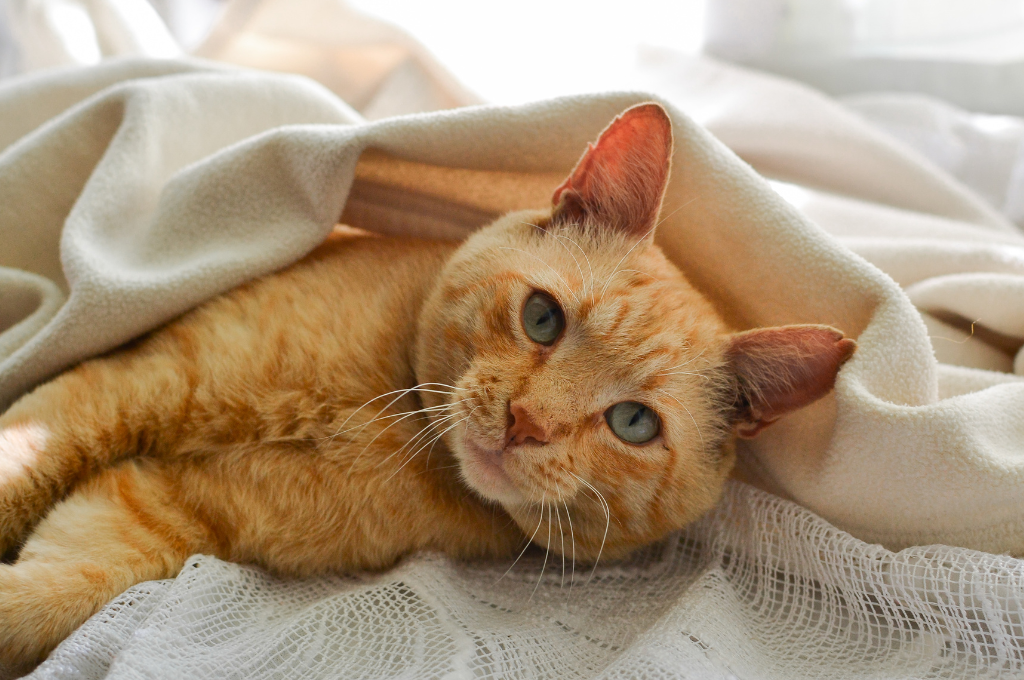
How Soon Can I Walk My Dog After Neutering?
Even though it might look like a small surgery to us, for our pets, neutering or castration seems to have a grave effect. After the surgical procedure, many pet parents wonder how to take care of their babies and ensure a fast and healthy recovery. So, in this article, we have discussed all the information that one needs to know when their fur baby has undergone neutering. Let’s begin!

Neutering is a surgical procedure, so it requires an approximate timeframe to heal. Regardless of gender, a dog needs almost two weeks to heal from the surgery fully. However, the owners think that neutering is just a simple procedure and might take only a few days to recover, but no surgery is simple.
As the incision is the same for both males and females, hence they require the same time period to recover from the surgical process. Also, you need to keep them under watch for this time period as they might present with several complications in their recovery. It is absolutely wrong to keep them at home during this time and go to work.
What are the Most Common Post-Neuter Complications?

Every surgery comes with a list of complications, but practicing certain things might reduce the chance of developing complications. Although prevention is the best way, recognizing a problem early and working to manage it are the key factors for a healthy dog recovery. Early recognition will require you to get well-versed in all the complications to recognize them early. So, let’s go through some of the most common complications to help us get a better knowledge of the whole procedure:
Hemorrhage:
Hemorrhage is the most complication of any surgery. During the surgical procedure, you might harm any other organ that is not your target organ. So, you should be very skillful during any surgery, as hemorrhage could be life-threatening if not treated properly.
Dehiscence:
Incisite site dehiscence is the worst ever complication one can go through after a hemorrhage. If caught early, the site should be cleaned as soon as possible, along with the abdominal contents. The damaged tissues should also be repaired, and the incisive site should be closed properly. After that, the doctor should prescribe appropriate antibiotics to prevent site infection.
Ovarian Remnant:
Although not much common, ovarian remnants are seen to be left off in some of the surgeries by mistake. To minimize this, the doctor should ensure that the ovaries and the suspensory ligament are cut off properly.
If your dog has ovarian remnants inside her, it should immediately be removed surgically. After you finish it, use two clamps and ligate the crushed area that lies proximal to the clamp.
Hypoglycemia:
Due to fasting before surgery, hypoglycemia is the most common complication. The usage of certain reversible anesthetic agents contributes to the rapid recovery of the dog, and hence it can be fed within an hour of its surgery.
Hypothermia:
This is mainly seen in smaller dogs, especially pups. To manage this, you can use heating pads, hot water bottles, hot air convection, and bubble wraps to keep your fur baby warm.
What are the Risks of Walking Your Dog Too Early?

Surgeries are major changes in someone’s body and can take a toll on them. So, they should rest properly before resuming their normal activities after the surgery. If they are not given proper time to recover, they might face a huge list of problems which, when not taken care of, might even lead to the death of your fur baby. Therefore, let’s learn about some of the problems that your dog might face if pushed too early to walk after neutering:
Opening of the suture:
Increased swelling can put a lot of pressure and thereby lead to the opening of the suture, which again causes huge pain to the dog.
Increased risk of infection:
If your wound gets reopened, chances of infection get increased, which consequently produces a lot of pain. And from this infection, it can lead to several other problems.
Fatigue:
Dogs should be given proper rest to regain muscle strength.
Swelling:
If you push your pup to walk too early after the surgery, it can lead to swelling and increased pain which results in great discomfort for your pup.
What are the Things to Do With Dog Post-Neuter Surgery?

There are lots of things that should be kept in mind when your pet has undergone major surgery:
Restrict activity:
Undergoing surgery causes a lot of pain, so the pet should be given proper rest to ensure a faster recovery. So, it is the owner's duty to restrict the pet's movement as much as possible.
Maintain a Proper Diet:
One of the most important factors for a healthy recovery is maintaining a proteinaceous diet. The owner should provide his or her pet with an adequate amount of nutrients to promote faster healing of the incision site.
Incision Should be Kept Dry:
Moist places give rise to opportunistic infections. Therefore, if you allow moisture to settle on the incision site, there are high chances of infection.
Monitor the Incision Site:
Regularly watch the incision site and check for signs of infection and redness, if any.
Assess the Pain Level:
Surgeries come with a whole lot of pain. So, make sure that you assess the pain level of your fur baby and administer the medications as per the doctor's advice.
Keep the Males and Females Separate:
This period is known to be their in-heat period, and therefore, males and females should be kept as far as possible.
Check for Complications:
Complications can be visible at any time. So, keep a close watch to recognize any kind of complication early.
Call For Doctors If You See Anything Unusual:
If you observe any kind of unusual behavior, immediately call the doctor.
How to Help Your Pup Regain Strength?
By now, you are well aware of the neutering process, its recovery timeline, and its complications. Now, it's time for you to get acquainted with how you can help them regain their lost strength.
Fatigue, along with muscle soreness and fatigue, is a common scene after your pet spays and can become very difficult for them to get accustomed to. Now, you can only shower them with all your love and care. If you feel that your dog is regaining its power, try engaging them in some light activities which interest them and build their strength bit by bit. Lastly, ensure plenty of water to keep them hydrated and follow their medications as the doctor prescribes.
Takeaway

Take care of your pet baby at this crucial time to ease their pain and help them recover comfortably without any complications. And, in case of any abnormalities, reach the doctor as soon as possible.
FREQUENTLY ASKED QUESTIONS
Should I use a cone or e-collar during walks after neutering?
Neutering has no effect on the usage of a cone or a collar. So, you can use either of them according to your own preference.
Can I let my dog off-leash for walks after neutering?
This completely depends on the aggressiveness of your dog. If he’s friendly and playful and shows no signs of aggression, you might let him off the hook for some time when outside, but if he is of an aggressive breed, you might still not let him off-leash even after neutering.
Are there any signs I should watch for during walks after neutering?
When you are walking your dog after neutering, monitor your dog's steps. Carefully observe if he can walk properly or not. If you notice an anomaly in their gait and posture, immediately stop them and consult their vet.
Recommended Articles :
Similar Articles
Latest Review on Woof Blankets
To have such a masterpiece by my side every day is a gift for me and my memories with Rex. Thank you WoofBlankets for such an opportunity to recreate his image on a blanket.Lara o’ Miguel US, California
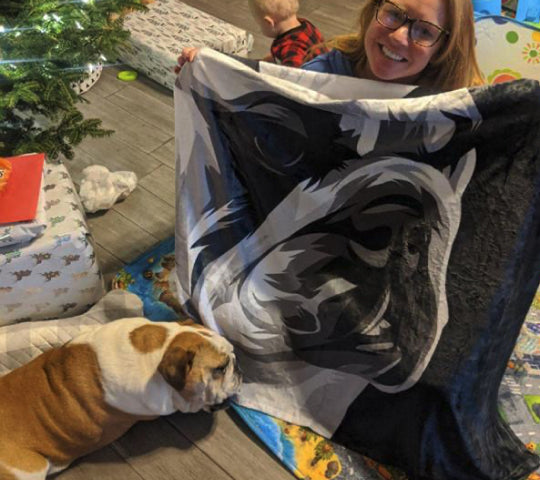
COLLECTION WORTH EVERY PENNY
BEST SELLERS
-
Woofy Single Color Custom Pet Blanket
![Woofy Single Custom Pet Blanket – Woof Blanket]()
- -41%
BlanketsSHOP NOW- Regular price
- from $64.95
- Sale price
- from $64.95
- Regular price
-
$109.95 - Unit price
- per
Sold out -
The French Sailor - Custom Pet Portrait
![]()
- -25%
CanvasSHOP NOW- Regular price
- from $59.95
- Sale price
- from $59.95
- Regular price
-
$79.95 - Unit price
- per
Sold out -
Summer Time Custom Pet Blanket
![Summer Time Custom Pet Blanket]()
- -39%
BlanketsSHOP NOW- Regular price
- from $69.95
- Sale price
- from $69.95
- Regular price
-
$114.95 - Unit price
- per
Sold out -
Pet Memorial Custom Photo Collage Blanket
![Personalized pet memorial quilt with photos]()
- -41%
BlanketsSHOP NOW- Regular price
- from $64.95
- Sale price
- from $64.95
- Regular price
-
$109.95 - Unit price
- per
Sold out -
4th of July Custom Pet Blanket
![4th of July Custom Pet Blanket Online]()
- NEW
- -39%
BlanketsSHOP NOW- Regular price
- from $69.95
- Sale price
- from $69.95
- Regular price
-
$114.95 - Unit price
- per
Sold out -
Modern Pet Portraits
![Cute Dog Modern Pet Portraits Online]()
- NEW
- -36%
CanvasSHOP NOW- Regular price
- from $59.95
- Sale price
- from $59.95
- Regular price
-
$93.95 - Unit price
- per
Sold out -
The Admiral - Custom Pet Portrait
![The Admiral - Custom Pet Portrait Online]()
- NEW
- -25%
CanvasSHOP NOW- Regular price
- from $59.95
- Sale price
- from $59.95
- Regular price
-
$79.95 - Unit price
- per
Sold out -
Woof Splash Custom Pet Blanket
![Woof Splash Custom Pet Blanket]()
- -39%
BlanketsSHOP NOW- Regular price
- from $69.95
- Sale price
- from $69.95
- Regular price
-
$114.95 - Unit price
- per
Sold out -
The Policeman - Custom Pet Portrait
![]()
- NEW
- -25%
CanvasSHOP NOW- Regular price
- from $59.95
- Sale price
- from $59.95
- Regular price
-
$79.95 - Unit price
- per
Sold out -
The General - Custom Pet Portrait
![]()
- NEW
- -25%
CanvasSHOP NOW- Regular price
- from $59.95
- Sale price
- from $59.95
- Regular price
-
$79.95 - Unit price
- per
Sold out -
Woof Love Custom Pet Blanket
![Woof Love Custom Pet Blanket]()
- -39%
BlanketsSHOP NOW- Regular price
- from $69.95
- Sale price
- from $69.95
- Regular price
-
$114.95 - Unit price
- per
Sold out -
The Ambassador - Custom Pet Portrait
![The Ambassador - Custom Pet Portrait Online]()
- NEW
- -25%
CanvasSHOP NOW- Regular price
- from $59.95
- Sale price
- from $59.95
- Regular price
-
$79.95 - Unit price
- per
Sold out -
Fall In Love Custom Pet Blanket
![Fall In Love Custom Dog Blanket]()
- NEW
- -39%
BlanketsSHOP NOW- Regular price
- from $69.95
- Sale price
- from $69.95
- Regular price
-
$114.95 - Unit price
- per
Sold out -
Cartoonized Pet Portraits (New)
![Cartoonized Pet Custom Portraits Online]()
- -36%
SHOP NOW- Regular price
- from $59.95
- Sale price
- from $59.95
- Regular price
-
$93.95 - Unit price
- per
Sold out -
The Classy Lady - Custom Pet Portrait
![The Classy Lady]()
- NEW
- -25%
CanvasSHOP NOW- Regular price
- from $59.95
- Sale price
- from $59.95
- Regular price
-
$79.95 - Unit price
- per
Sold out -
The Duke - Custom Pet Portrait
![The Duke - Custom Pet Portrait]()
- NEW
- -25%
CanvasSHOP NOW- Regular price
- from $59.95
- Sale price
- from $59.95
- Regular price
-
$79.95 - Unit price
- per
Sold out -
Dog In Suit- Custom Pet Portrait
![Dash Dog In Suit- Custom Pet Portrait Online]()
- NEW
- -25%
CanvasSHOP NOW- Regular price
- from $59.95
- Sale price
- from $59.95
- Regular price
-
$79.95 - Unit price
- per
Sold out -
The Princess - Custom Pet Portrait
![]()
- NEW
- -25%
CanvasSHOP NOW- Regular price
- from $59.95
- Sale price
- from $59.95
- Regular price
-
$79.95 - Unit price
- per
Sold out -
Modern Pet Portrait with One Mug
![Modern Pet Portrait with One Mug]()
- -25%
Print MaterialSHOP NOW- Regular price
- from $99.95
- Sale price
- from $99.95
- Regular price
-
$133.95 - Unit price
- per
Sold out -
The Aristocrat - Custom Pet Portrait
![The Aristocrat - Custom Pet Portrait At Best Price]()
- NEW
- -25%
CanvasSHOP NOW- Regular price
- from $59.95
- Sale price
- from $59.95
- Regular price
-
$79.95 - Unit price
- per
Sold out -
Single Color Custom Blanket with 1 Mug
![Single Color Custom Blanket with 1 Mug]() BlanketsSHOP NOW
BlanketsSHOP NOW- Regular price
- from $99.95
- Sale price
- from $99.95
- Regular price
-
- Unit price
- per
Sold out -
Single Color Custom Blanket with 2 Pillows
![Single Color Custom Pet Blanket with 2 Pillows]()
- -21%
BlanketsSHOP NOW- Regular price
- from $99.95
- Sale price
- from $99.95
- Regular price
-
$125.95 - Unit price
- per
Sold out -
The Dog in Suit Custom Pet Mug
![]()
- -20%
MugsSHOP NOW- Regular price
- $39.95
- Sale price
- $39.95
- Regular price
-
$49.95 - Unit price
- per
Sold out -
Angel Custom Pet Mug
![]()
- -20%
MugsSHOP NOW- Regular price
- $39.95
- Sale price
- $39.95
- Regular price
-
$49.95 - Unit price
- per
Sold out -
This Human Belongs To - Custom Pet Mug
![]()
- NEW
- -20%
MugsSHOP NOW- Regular price
- $39.95
- Sale price
- $39.95
- Regular price
-
$49.95 - Unit price
- per
Sold out -
It's Not Dog Hair Custom Pet Mug
![]()
- NEW
- -20%
MugsSHOP NOW- Regular price
- $39.95
- Sale price
- $39.95
- Regular price
-
$49.95 - Unit price
- per
Sold out -
My Dog Is My Valentine Custom Pet Mug
![]()
- NEW
- -20%
MugsSHOP NOW- Regular price
- $39.95
- Sale price
- $39.95
- Regular price
-
$49.95 - Unit price
- per
Sold out -
3 Photos With Message Custom Pet Mug
![]()
- NEW
- -20%
MugsSHOP NOW- Regular price
- $39.95
- Sale price
- $39.95
- Regular price
-
$49.95 - Unit price
- per
Sold out -
My Valentine Has Four Legs- Personalized Mugs
![]()
- NEW
- -20%
MugsSHOP NOW- Regular price
- $39.95
- Sale price
- $39.95
- Regular price
-
$49.95 - Unit price
- per
Sold out -
Dog Mamma Custom Pet Coffee Mug
![]()
- -20%
MugsSHOP NOW- Regular price
- $39.95
- Sale price
- $39.95
- Regular price
-
$49.95 - Unit price
- per
Sold out -
Uncle Sam - Custom Pet Portrait
![]()
- NEW
- -25%
CanvasSHOP NOW- Regular price
- from $59.95
- Sale price
- from $59.95
- Regular price
-
$79.95 - Unit price
- per
Sold out -
The Revolutionary Emperor - Custom Pet Portrait
![]()
- NEW
- -25%
CanvasSHOP NOW- Regular price
- from $59.95
- Sale price
- from $59.95
- Regular price
-
$79.95 - Unit price
- per
Sold out -
The Princess Paws - Custom Pet Portrait
![]()
- -25%
CanvasSHOP NOW- Regular price
- from $59.95
- Sale price
- from $59.95
- Regular price
-
$79.95 - Unit price
- per
Sold out -
Exclusive Custom Pet Blanket
![Exclusive Custom Pet Blanket]()
- -39%
BlanketsSHOP NOW- Regular price
- from $69.95
- Sale price
- from $69.95
- Regular price
-
$114.95 - Unit price
- per
Sold out -
The Dark Crusader Knight - Custom Pet Portrait
![]()
- -25%
CanvasSHOP NOW- Regular price
- from $59.95
- Sale price
- from $59.95
- Regular price
-
$79.95 - Unit price
- per
Sold out

